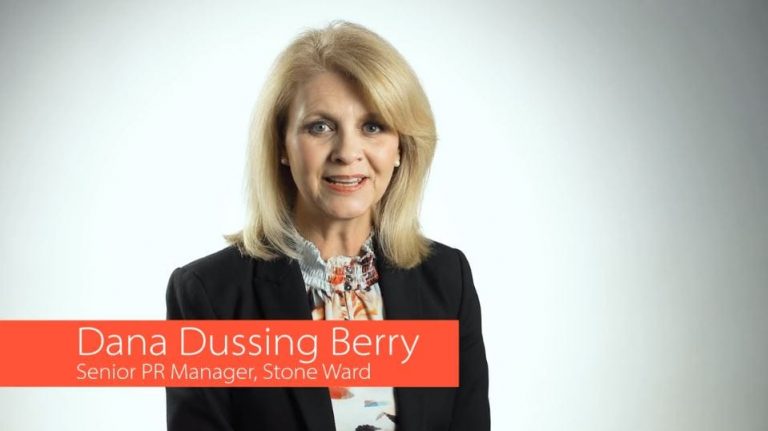As Media Director, I often look for articles to help further my industry knowledge. With an ever-changing mix of new media, it’s difficult to separate the important from the gimmicky. Upon some searching, I stumbled across Ten Principles of Media Management written by former Stone Ward Media Director, Debra Reid. Debra was my Media mentor for 8+ years at Stone Ward and has taught me everything I know about Media. Have a question about Media? Debra had the answer. Debra is since retired and sipping beer-margaritas poolside but her legacy lives on. As Debra so eloquently stated in her original article: “After reading through these principles again today, I realize that even with all the changes in media channels, analysis tools and buying software over the years, these same principles still hold true, so I want to share them with you now.” Below is her original article. I hope you enjoy!
The following is Debra’s original post from July 31, 2013 published on the Stone Ward blog.
I have been preparing for a new media planner/buyer to join our agency. As part of my preparation, I’ve been tweaking job descriptions and going through past training materials, to prepare for her orientation. I ran across ten principles that were shared with me many years ago by a man named Jim Surmanek, an author and veteran media professional. As a writer he had been able to put in the written word my own philosophies on media planning and buying. It was as if he had read my mind. We were definitely like-minded on this but it appears as though I had read his mind. I read one of Jim’s books on advertising media when I first got into this business over 30 years ago. Then, when I joined Stone Ward, I had the pleasure of meeting him in person and working with him through the Chicago office of CARAT WORLDWIDE. I have followed these principles as I built my career and have shared them with new agency employees during their orientation time with me to help them understand my philosophy on media planning and buying in order to create a more collaborative working environment. After reading through these principles again today, I realize that even with all the changes in media channels, analysis tools and buying software over the years, these same principles still hold true, so I want to share them with you now.
- You are in partnership with all others who are deciding the advertising plan. A media plan is an extension of the marketing plan and must reflect the overall marketing and creative strategy. Your media plan cannot exist in a vacuum and be effective.
- Media management is money management. Media recommendations are an investment in an advertiser’s business. By making the savviest media decisions, you gain the greatest return on investment.
- Involvement with all media is a primary requisite. Specializing in one medium, to the exclusion of others, breeds narrow thinking. Consider all the options. Never look for the expeditious solution simply to save time.
- Numbers don’t think—people do. Numbers are a big part of a media planner’s day-to-day activities. But don’t rely solely on them to make your decisions or argue your case. Use your emotions, your gut, and your instincts.
- Cost efficiency is important, but not at the cost of advertising effectiveness. You must make sure your customers see and hear the advertising you are placing—even if it costs a few pennies more in one medium than in another.
- Maintenance is as important as building. It is not enough simply to create a media plan. All plans must be monitored after they are implemented to ensure that schedules are followed, positioning is optimal and reproduction is acceptable.
- Everyone should be kept informed. Endeavor to keep your partners informed about media issues and changing dynamics. The more everyone knows, the better their understanding and appreciation of your media recommendations.
- Keep your door open to media suppliers. Media salespeople often know more about their specific medium than you, as a media planner, will ever know. They can be a storehouse of pertinent information that will help you make better media decisions. Be candid with them and keep them abreast of your needs.
- Contribute beyond media planning. As a media planner, your greatest contribution will be in media planning and buying. But you should not be inhibited about recommending marketing, creative, promotional, or new product ideas that can build an advertiser’s business.
- Have fun. Work hard and get ahead. Do superb work. But keep balance in your life.
Thank you, Jim, for these principals and all the other things you have taught me through your books. They have served me well.







